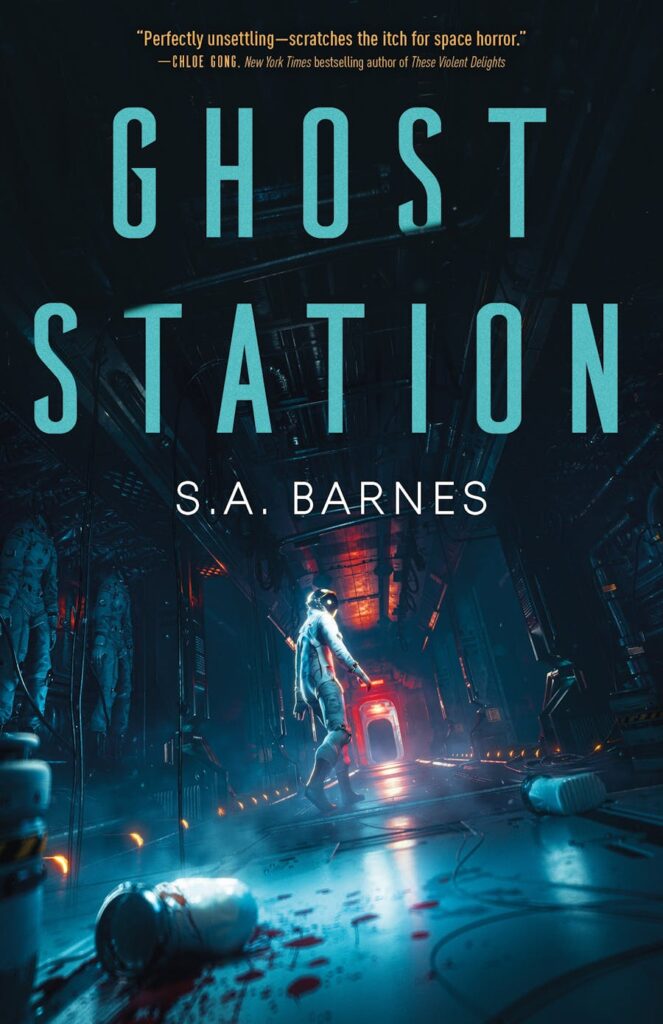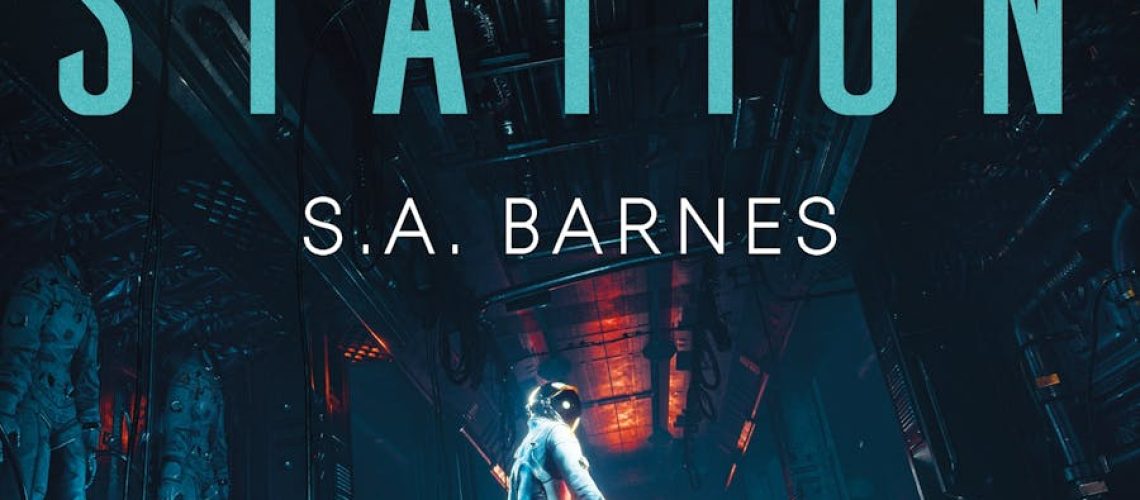Dr. Ophelia Bray is hiding from traumatic incidents in her past: one in childhood, long buried under layers of secrets; one more recent, a patient who has committed suicide. A psychiatrist, Ophelia specializes in ERS, a disorder accompanied by psychoses and often violence that arises in individuals from the prolonged stresses and relative isolation brought about through space exploration, even among small, interactive teams. Her commitment to the treatment of ERS stems from its direct link to her past; her compassion for her patients comes—at least in part—from guilt and a search for atonement.
Dr. Ophelia Bray is running from her family: one side, the paternal, escaped long ago; one side, the maternal, seeking to control her life as the wealthy and powerful Brays do with all their resources. To distance herself from the Brays and the family business (led by her uncle and tied to space exploration and the recovery of materials and potential technology from the ruins of extinct alien races), Ophelia works for their major competitor. In defiance of her uncle’s wishes and pleas, Ophelia accepts assignment as psychologist to an exploration crew on its latest planetary mission, replacing a member of their team who recently died in a presumed ERS-related incident.
Though she is eager to move on and fulfill her supporting role within the team, Ophelia can’t seem to shake her past or find welcome among the team members’ diverse personalities. Arriving at their planetary destination, they begin their exploration of the abandoned alien remnants and investigation of what happened to the planet’s previous group of rival colonizers—who seem to have abandoned their station facility there in a hurry.
Strange occurrences begin to mount, friction between individuals grows, and the team pilot is soon found killed in gruesome fashion. Ophelia and the rest of the surviving team must wrestle with questions of whether they are suffering from the mental deterioration and violence of ERS, or if something utterly different—and even more threatening—confronts them.

Ghost Station follows S.A. Barnes’ successful and award-nominated (e.g. the Goodreads Choice Awards) science horror novel Dead Silence from 2022. I hadn’t read that novel, so was interested in getting Ghost Station to dip more into a sub-genre of horror I don’t frequent as much (and is rarer.) The novel is a good split between the two genres, though with a more overt presence and vibe of science fiction. I would predict it would be more readily enjoyed by general fans of science fiction that aren’t too into horror compared to the converse. The horror is present in moments of gore and atmospheric sections that you could just as easily find in a gothic haunted house novel:
“Ophelia shivers, taking a step back automatically. It’s so quiet in here without the enviro systems on. Quiet and cold. The temperature is dropping rapidly. The temptation to hide—or run—is strong… Ophelia’s defensive self-preservation impulses rise up, as they always do.”
This is the aspect of Ghost Station that I most enjoyed. It effectively takes a ghost story style plot, full of ambiguity over what is reality versus what is psychological, and it makes it completely unrelated to ghosts or the expected appearances of horror, instead going fully into biologically speculative elements. Swap out the setting and the explanation for the sinister mystery here with mundane Earth-bound elements of a gothic novel and you’d have something that reads completely differently, but utterly familiar as gothic horror. Barnes takes all those elements (e.g. family secrets and torment) but with science fiction application on another world. It’s a switcheroo that at first leaves a reader wondering where is the horror? Then you think about it, and realize it’s all right there, we’re just used to treating science fiction differently, as something separate—particularly when it comes down on the side of rationale over supernatural happenings. This isn’t Jason X (Friday the 13th does “Jason in Space.”) It’s not even the horror of Alien, as the body horror here is far more tamed, and there isn’t the same type of alien monster roaming the corridors here. Ghost Station is science fiction gothic, and that’s really interesting.
The psychological stress on Ophelia and the other characters rears as a greater threat throughout the novel even more than those brief moments of violence or gore. The main theme of the novel ultimately comes down to Ophelia’s growth to surpass hiding and running. The text I quoted above regarding horror atmosphere continues with this text:
“But that’s the problem. She’s tried hiding, avoiding, too many times. It doesn’t work. She keeps ending up in increasingly difficult situations, trying to make herself smaller, less objectionable to whoever is judging. Fuck that. I’m done running. I’m done hiding.”
It’s not surprising that Barnes devotes the most time and energy developing the protagonist Ophelia, but she also includes interesting arcs for the other team members. Yet, even though they all change significantly, those secondary characters were less developed overall, and reliant on their basic personality traits, for their arcs to have as much of the impact. The one exception would probably be the mission leader, who grows closer with Ophelia after being initially antagonistic and skeptical of her presence being inserted into their team.
There is a relatively slow pacing to Ghost Station, particularly in its start. I don’t believe this is a particular problem to the novel. However, a significant chunk of the novel is past before arrival at the station, most of which deals with Ophelia’s state of mind, motivations, and insights into her past. The “pacing” within that first (roughly) half of the novel was fine, but it’s a different kind of story than what begins to unfold on the planet. It’s a necessary preamble to understand what eventually happens, and to empathize with Ophelia’s ultimate growth. But, it didn’t need to be as long as it was. Details and scenes flowed well, but they could have been lost without affecting the end product. This made Ghost Station harder to get into and appreciate while reading, and only after finishing did the whole begin to make sense and I began to feel as if I could now see what Barnes was setting out to do.
But, I’m not an editor, and that’s just my opinion now, just immediately after reading. I liked Ghost Station, but I think I enjoyed it more overall in an academic sense than in the entertained-as-I’m-reading sense. It’s one I may have enjoyed more amid the reading process had I gone into with a sense of expecting gothic in space. So maybe that will help out some perspective readers out there. In the end I think Ghost Station would be enjoyed by those that like science fiction thrillers, psychological weirdness, and alien speculation. If your main sandbox is horror, this might not fit the bill. Having not read Dead Silence, I can’t really comment on how fans of that novel might react to Ghost Station, but I would think it would at least be worth checking out if open for potentially different things.







